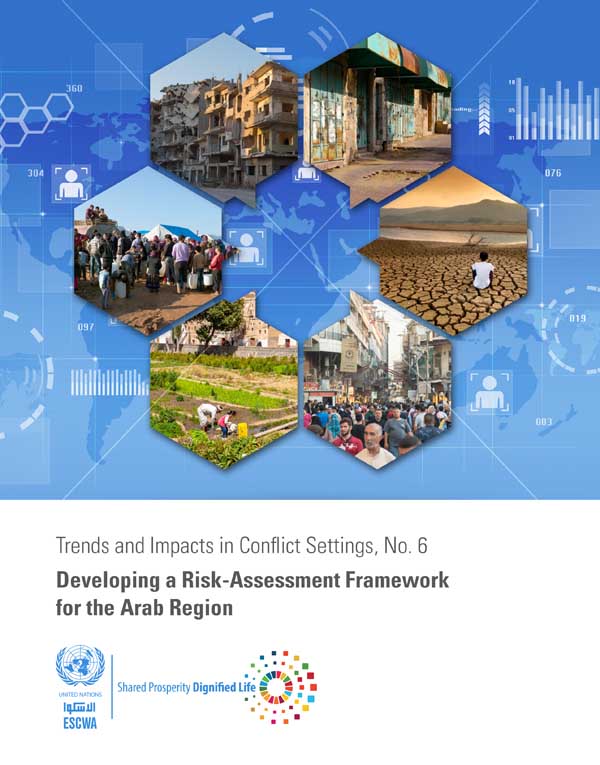ESCWA is convening an expert group meeting on “Climate-related security risks in the Arab region.” The virtual meeting aims to assess the advancement in climate security in the region and examine ways to capitalize on it. It also explores the findings of the next edition of the ESCWA “Trends and Impacts” series, which covers climate change, security and peace in the Arab region. Participants include key experts from academia, think tanks and the multilateral system working on climate-related peace and security risks.
Climate concerns can become security concerns in scenarios defined by compound risks. There is generally not a single event (a flood or drought, for example) that triggers conflict. Rather it is a combination of factors, such as a weak labour market, deeply divided political rivalries, and a lack of social protection combined with factors, like water scarcity, caused by climate change that may potentially generate a security risk that erupts into conflict.
The importance of working at the community level was a recurrent topic in the meeting. The heterogeneity of the region is even greater at the subnational level where there are subnational climatic variations as well as socioeconomic diversity—such as vulnerable low-income communities located within high income cities and states. Going forward, there is a need to think through how to best involve stakeholders at the community level in the effort to identify and to address climate security challenges. Working with food and water systems at the local level could be an entryway, supporting community adaptation mechanisms that also reinforce peacebuilding efforts by easing tension surrounding access to limited natural resources, for example.
In terms of access to finance, several participants cited their concerns both surrounding the lack of climate finance to countries in conflict and situations of vulnerability and the capacity of countries to be able to effectively use climate finance when in situations of conflict. There is a need for more research and experimentation (pilot projects) to provide climate finance to countries where the state apparatus may be weakened by conflict.
Transboundary cooperation is critical. There must be more regional efforts to address climate security related challenges across borders. Climate challenges like flood, drought, and sand and dust storms cross borders. There may be space for a regional adaptation plan or more cooperative strategies for water management.
